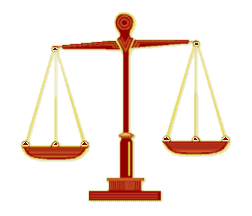Criminal procedure facts for kids
Criminal procedure is all about the rules that courts follow when someone is accused of a crime. These rules make sure that trials are fair. While the exact steps can be a bit different in various countries or regions, the process usually starts when someone is formally accused of a crime. It ends with a decision: either the person is found guilty (called a conviction) or found not guilty (called an acquittal). The person accused of the crime is called the defendant.
Contents
Fair Rules for Criminal Cases
Many countries today have a democratic system where everyone follows the rule of law. This means laws are clear and apply to everyone. In a criminal case, there are some important rules that help make sure things are fair.
Who Proves What in Court?
One key rule is that the prosecution (the lawyers trying to prove someone committed a crime) must show that the defendant is guilty. They have to prove it "beyond any reasonable doubt." This means they need to present enough evidence so that there's no real question about whether the person did it.
This is different from the defendant having to prove they are innocent. If there's any doubt about whether the defendant is guilty, the court must decide in favor of the defendant. This important idea is called the presumption of innocence. It means everyone is considered innocent until proven guilty.
What Rights Do Accused People Have?
If someone is accused of a serious crime, they have important basic rights to help them get a fair trial. These rights are in place to protect everyone.
- The right to know exactly what crime they are being arrested for.
- The right to have a legal counsel (a lawyer) to help them. This lawyer can explain their rights and defend them in court.
See also

- In Spanish: Derecho procesal penal para niños
 | William Lucy |
 | Charles Hayes |
 | Cleveland Robinson |


